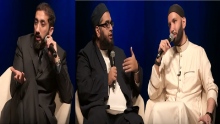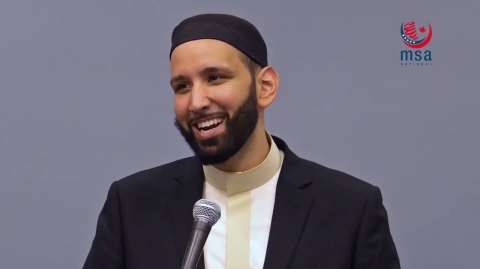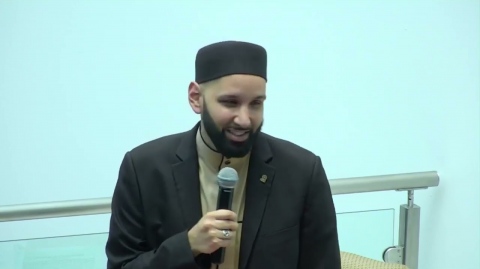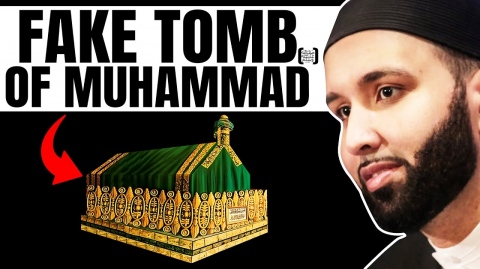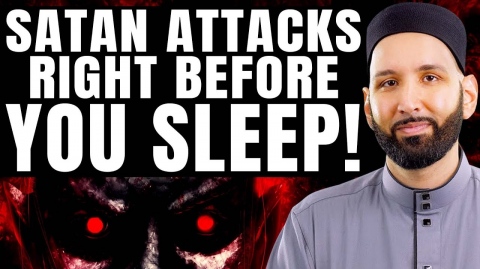Sharia Law vs. Penal Code - Out of Context (Part 5) - Omar Suleiman
9 years ago
10:12
44,584 views
An engaging conversation between a Christian Pastor and a Muslim Imam, "Out of Context" is a 14 part Interview series answers pressing questions about Islam and gives valuable insight into the spirit of the faith.
In Part 5 of the interview with Dallas-based Pastor Mike Baughman, Imam Omar Suleiman gives the definitive word on the meaning of Sharia law and how it must be distinguished from Islamic penal code. Lamenting the fact that Muslims often have to distance themselves from terms that have been abused because they don’t have sufficient time to explain them, Suleiman begins by noting that linguistically, the word “sharia” in Arabic means “a path leading to water”. It does not refer to law per se, but refers to the idea of divine legislation. It is not synonymous with heads and hands flying off, nor is it synonymous with criminal law. While there is a component of it that is government-based, the main component of it is individual and pertains to personal practice and maintaining one’s religious identity. On the state level, the “hudud” or penal code aspect, is a very small, misunderstood, part of sharia that is purely discretionary. In the first 1,000 years of Islamic history, there was not a single narrated case of stoning, for instance, because the conditions dictated in the Quran for such punishment are so impossible to meet that it becomes impossible to implement it. The horrors propagated by groups such as ISIS are absolutely alien to Islam, just as the concept of “taqeyya” - that Muslims can deliberately deceive others to secretly advance the faith. There is no evidence in neither the Quran nor the tradition of the Prophet to support this notion.
Please visit https://www.bayyinah.org to support our vision.
In Part 5 of the interview with Dallas-based Pastor Mike Baughman, Imam Omar Suleiman gives the definitive word on the meaning of Sharia law and how it must be distinguished from Islamic penal code. Lamenting the fact that Muslims often have to distance themselves from terms that have been abused because they don’t have sufficient time to explain them, Suleiman begins by noting that linguistically, the word “sharia” in Arabic means “a path leading to water”. It does not refer to law per se, but refers to the idea of divine legislation. It is not synonymous with heads and hands flying off, nor is it synonymous with criminal law. While there is a component of it that is government-based, the main component of it is individual and pertains to personal practice and maintaining one’s religious identity. On the state level, the “hudud” or penal code aspect, is a very small, misunderstood, part of sharia that is purely discretionary. In the first 1,000 years of Islamic history, there was not a single narrated case of stoning, for instance, because the conditions dictated in the Quran for such punishment are so impossible to meet that it becomes impossible to implement it. The horrors propagated by groups such as ISIS are absolutely alien to Islam, just as the concept of “taqeyya” - that Muslims can deliberately deceive others to secretly advance the faith. There is no evidence in neither the Quran nor the tradition of the Prophet to support this notion.
Please visit https://www.bayyinah.org to support our vision.


 English
English Български
Български No filter
No filter





